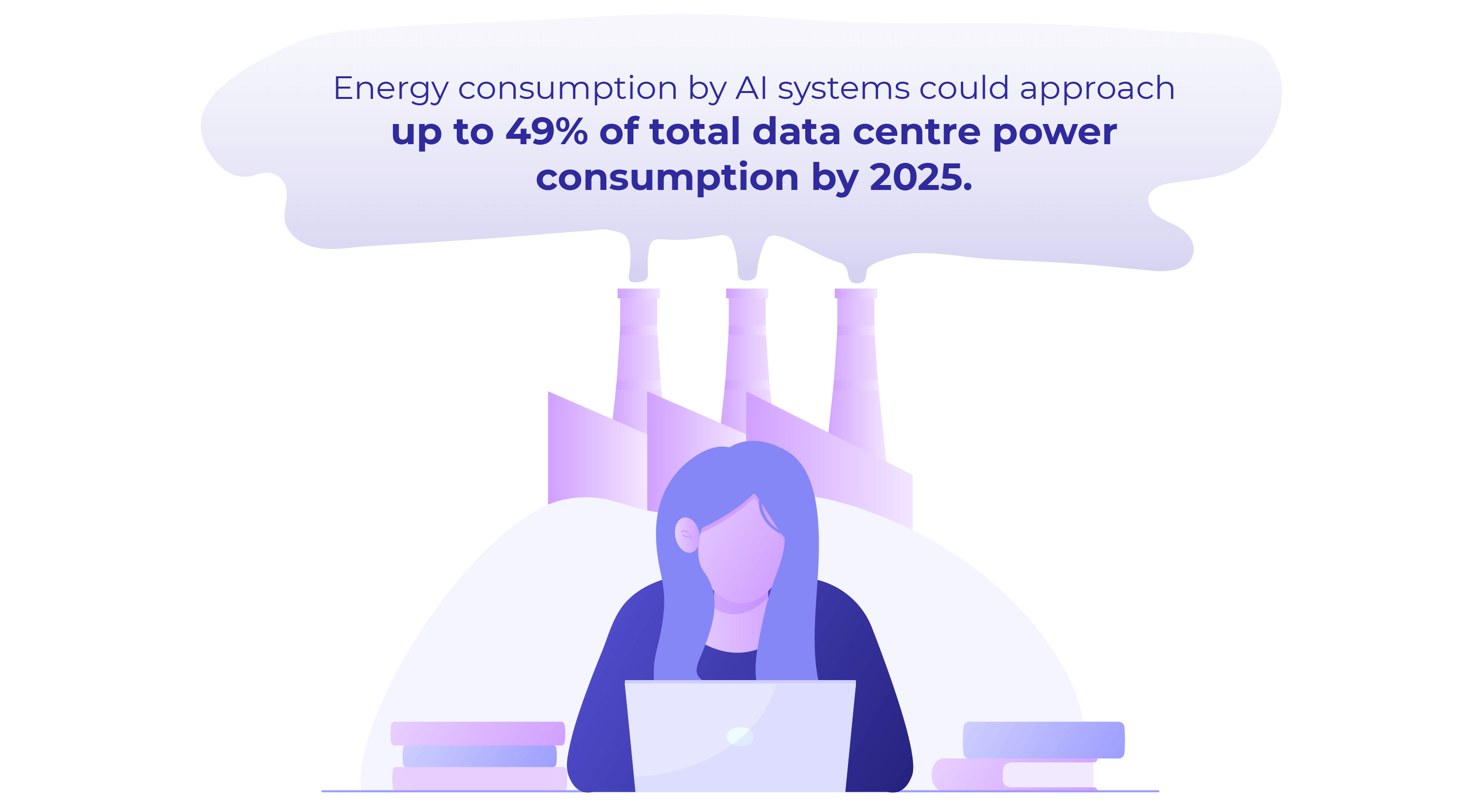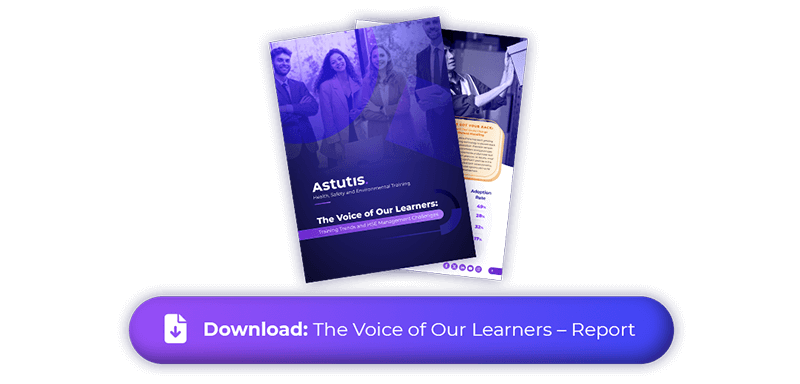The Truth About AI & The Environment: Pros and Cons
Is Artificial Intelligence (AI) good or bad for the planet? The short answer: it's complicated. The right answer requires a balanced view of AI's benefits for the environment and its detrimental impact on the environment. AI can contribute positively to sustainability outcomes, but society can't ignore its significant potential contribution to climate change. Understanding the drawbacks and benefits of AI will allow us to make informed decisions about its possible applications whilst being conscious of its environmental impact.
Does Using AI Benefit the Environment?
Firstly, the good news. The widespread adoption of AI algorithms in our day-to-day lives has several positive uses for the environment and the development of better sustainability practices.
Enhancing Energy Management Through Smart Grid Technology
Leveraging AI can transform traditional grids into intelligent, adaptive, efficient, and sustainable energy systems by implementing AI algorithms based on machine learning, data analytics and the collective network of connected devices across the internet.
A smart grid integrates a two-way flow system of energy distribution and digital communication technology to optimise electricity generation, transmission, and distribution. As a result, smart grids enable better grid control, self-regulation, and real-time grid monitoring.
AI can also analyse real-time data to detect and predict potential issues and signs of wear and damage throughout the grid, enabling companies to make better decisions by processing large data sources quickly to recommend optimal energy distribution processes.
Helping Integrate Renewable Energy
AI models allow the effective integration of renewable energy sources like solar and wind into the electricity grid. They balance energy demand and supply and efficiently manage the intermittency of the energy sources - helping decentralise the electricity grid.
Developing Supply Chain Sustainability for Businesses
AI can play a crucial role in helping organisations develop better sustainability practices in the supply chain by using optimised operations, demand forecasting, route optimisation, supplier transparency, risk management, and efficient resource utilisation.
Some of the ways AI can inform supply chain sustainability include:
- Demand Forecasting – Producing an accurate forecast of demand to help minimise overproduction and excess inventory.
- Risk Management & Route Optimisation – Evaluating climate risks and vulnerabilities for different routes to provide resilient supply chains that can withstand disruptions.
- Supplier Transparency – Helping achieve visibility and transparency across the supply chain by setting and tracking benchmarks within the organisation.
By analysing massive datasets, AI's insights can identify bottlenecks and streamline workflows in supply chain management to optimise processes.
Environmental Monitoring and Nature Preservation
Monitoring environmental conditions and improving biodiversity protection and conservation efforts are also within AI’s capacity.
For environmental monitoring, AI can process large volumes of satellite imagery to assess land-use changes and deforestation whilst also assessing data from environmental sensors to evaluate pollution levels. This can be useful in current times because the earth is continuing to warm due to the effects of greenhouse gas emissions.
Predicting natural disasters and delivering early warning signs from environmental events such as floods and wildfires is also possible through AI, which allows for timely intervention to mitigate damage and loss of life.
Does Using AI Negatively Impact the Environment?
Despite the enormous potential benefits of implementing AI, recent reports led by organisations such as Friends of the Earth (FOE) and Climate Action Against Disinformation (CAAD) suggest two massive threats posed by using AI.
Massive Energy and Water Usage
Society has massively underestimated the gigantic amounts of energy and water needed by AI systems such as ChatGPT. By the end of 2025, De Vries-Gao estimates, energy consumption by AI systems could approach up to 49% of total datacentre power consumption
The International Energy Agency (IEA) estimates indicate that data centres that power AI consume energy comparable to the entire country of Japan. They also estimate that this consumption will double in the next two years.

Additionally, AI data centres consume large amounts of water, exacerbating issues in already water-stressed areas such as the Middle East and North Africa.
Even with a potential 10 percent increase in energy efficiency utilising AI, the doubling of data centres to meet the AI demand will cause an 80 percent increase in global greenhouse gas emissions. This flies in the face of Net-Zero targets set out in the Paris Agreement.
Spreading Climate Disinformation
Secondly, the report suggests that AI could worsen the spread of climate disinformation by enabling climate deniers to cheaply and rapidly create and spread false content across social media and search engines.
Recent developments in regional elections have demonstrated how AI has been used to deliver misinformation in elections. Thus, there has been a feverous call for the government to legislate against this AI-generated content.
The fact that AI can increase data centre energy consumption from 1% to 13% in a relatively short space of time is worrying. It indicates that the opportunity presented by the potential reduction of energy demand and optimised energy efficiency may be small compared to the colossal energy consumed by AI systems. Further research is needed to quantify the number of materials and resources required to meet the needs of widespread continued use of AI so that we can mitigate the drawbacks.
What Other Opportunities Are There to Improve an Organisations Sustainability?
For more insights on the impact of AI on the health, safety and environmental industries you can download our annual learner report which has exclusive statistics and analysis on the impact of AI, and many more environmental training trend and insights.
For those looking to understand other opportunities for their organisation to improve their environmental sustainability outside of the implementation of AI, we have made suggestions for choosing an environmental course previously.
We'd recommend acquiring the IEMA Sustainability Skills for Managers certificate linked below, if you're in a leadership position.
Learners who successfully complete this course will understand the full breadth of risks and opportunities associated with environmental sustainability, as well as any laws and regulations that apply to their industry and business. The course is suitable for:
- Managers
- Supervisors
- Contractors
- Team Leaders
It won’t turn you into an environmental expert. However, it will give you an understanding of the accountabilities placed on your business by the law, nature, and environment management systems. You’ll also learn the practical skills you need to take to help meet those obligations and improve sustainability performance. If you have any further questions, our course page linked below has answers to the most frequently asked questions about the IEMA Sustainability Skills for Managers and a demo of our online version of the course.

Real Life Stories





